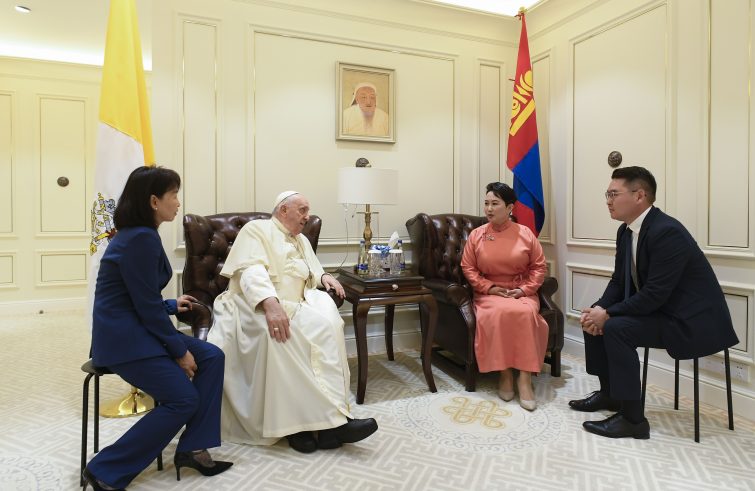
“In my opinion, in the medium and long term it will no longer be a question of weapons in the military sense of the word, but first and foremost the weapon of diplomacy.” In this regard, “the diplomatic role of the Holy See is becoming increasingly important.” SIR interviewed Ambassador Pasquale Ferrara, Acting Director General for Political and Security Affairs at the Ministry of Foreign Affairs and International Cooperation, to discuss whether the search for a “diplomatic” solution to the conflict in Ukraine is progressing in light of the Holy See’s challenging “peace offensive.” Pope Francis is currently in Mongolia, a country landlocked between Russia and China, and Beijing will be the next destination – after Kyiv, Moscow and Washington – of his “peace envoy” Card. Matteo Zuppi.
Professor Ferrara, how is the diplomacy of peace – initiated by the Holy See and Pope Francis – taking shape on the basis of the “steps” taken and yet to be taken?
The diplomacy of the Holy See is gaining increasing relevance. Not surprisingly, the Vatican participated in the international conference on Ukraine in Saudi Arabia. Cardinal Zuppi’s forthcoming mission to Beijing is an important new step, because part of the solution could come through Beijing. But it requires great realism: the Holy See continues to carry out its activities, which are primarily humanitarian, but inevitably have a political dimension.
Let us take the issue of prisoners, deportees and abducted children: if there is no agreement, there are no viable options, there must be cooperation on both sides. And that is politics.
Speaking to a group of young Russians a few days ago, the Pope made a statement about the history and culture of the ‘Great Russia’, which unfortunately was strongly criticised in Ukraine. To what extent is the Pope heard and involved today?
Pope Francis never misses an opportunity to remember the enormous suffering of the Ukrainian people. The Pope directs his gaze on the people and not on the state apparatus.
In this respect, remembering the greatness of Russia, its cultural heritage, is a historical statement that has nothing to do with Putin’s neo-imperialist political agenda. There is a long history, the history of culture and civilisations, which should not be confused with the manipulative way in which it is used by the Kremlin.
Pope Francis has called on young people to widen their gaze, to focus on the heritage of Russian culture, which has interacted with the West for centuries in a mutually enriching process. It is an encouragement not to be instrumentalised: quite the opposite of certain superficial interpretations.
President Zelensky has expressed his openness to a ‘political solution’ for Crimea, despite the continuing reports of bombings on the peninsula. Is this openness credible?
President Zelensky’s reference to Crimea has been misinterpreted. No Ukrainian politician could ever admit the definitive loss of Crimea. That’s a different matter: Kyiv expects that when and if the conflict reaches a stage characterised by Ukrainian military pressure also on Crimea, Russia will surrender and withdraw its troops from the peninsula. In Zelensky’s view, this amounts to ‘demilitarisation’. In any case, from the Ukrainian perspective, the issue is the end of the Russian occupation of Crimea, which has been ongoing since 2014. This, however, is crucial in the context of Moscow’s political-strategic goals, as the latter has proclaimed its annexation and therefore considers it to be part of its national territory.
There is no respite for war-ravaged Ukraine. In fact, military ‘deliveries’ to Ukraine continue, suggesting a strategy that sees no glimmer of peace on the horizon. Is there still room for negotiation?
In my opinion, in the medium and long term it will no longer be a question of weapons in the military sense of the word, but first and foremost the weapon of diplomacy.
The Ukrainians are heroically defending their country. However, it now seems quite clear that the military action on the battlefield will need to be coupled with the search for a political solution, focusing on Ukraine’s sovereignty, independence and territorial integrity. In this respect, the international meetings that took place in Copenhagen and then in Jeddah, Saudi Arabia (with the participation of China) on Zelensky’s peace plan, are important signals because they extend beyond the group of Western countries.









